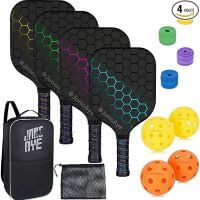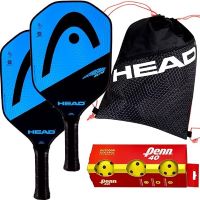Pickleball has become a popular sport enjoyed by people of all ages around the world. This fast-paced game requires coordination, communication, and sportsmanship to play well. While pickleball has specific rules, there are also unwritten rules or etiquette that players should follow to ensure a fun and fair game.
The unwritten rules of pickleball etiquette are not listed in the official rule book, but they are just as important for players to observe. In this article, we will outline the key unwritten rules of pickleball etiquette that every player should know to have an enjoyable and respectful game.
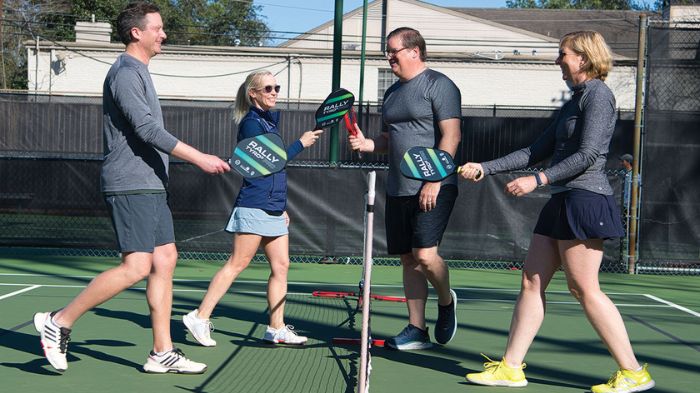
You Might Also Like:
Importance of Pickleball Etiquette
Did you know that playing pickleball requires not only physical skills but also social skills? Yup, that’s right! Following proper etiquette on the court makes sure that everyone respects each other, communicates effectively, and avoids conflict during the game.
Since pickleball is a sport where players are often really close to each other, it’s important to have good communication skills to coordinate with your team.
But hey, there’s more! Following pickleball etiquette also makes the game more enjoyable for everyone. When you respect others and follow the rules, it creates a positive environment where players can have fun and enjoy each other’s company without being made fun of or insulted. It teaches mastering various pickleball tricks, techniques, pickleball topspin serve, Shots which helps you to improve your game.
And get this – experienced players even teach newbies about pickleball etiquette so that everyone can have a good time!
So, if you want to have a great time playing pickleball, make sure to follow the etiquette rules. Not only will you have more fun, but you’ll also improve your skills and become a better player.
Purpose of Unwritten Rules
There are unspoken rules that are equally significant to pickleball as there are written regulations that are enforced by officials. These unwritten guidelines have evolved over time as a result of players’ collective experiences, and they help uphold a standard of decency and respect that improves the game as a whole.
These unwritten rules are intended to establish a level of justice and sportsmanship above and beyond the written rules of the game. For instance, even though the formal rules may permit particular actions, such as arguing over a call or using foul language, the unwritten rules forbid these actions and encourage a more uplifting and courteous environment.
These unwritten laws are frequently transmitted through observation and instruction from seasoned players. They aid in establishing a common etiquette among players, which promotes a sense of friendship and community. Pickleball is a popular and fun sport for individuals of various ages and backgrounds in large part due to this sense of community.
Etiquette on the Court
Etiquette on the pickleball court is essential for maintaining a positive and respectful atmosphere. It involves communication, court priority, proper fault calling, and following the non-volley zone rule.
Communication
One of the most important parts of playing pickleball is communicating. To construct a game plan and prevent confusion, players must properly communicate with their partners. Players must maintain communication with one another during the game to ensure that they are both aware of their positions and what is happening on the court. This makes the game run more smoothly and successfully by preventing pointless collisions.
Entry and Exit from Court
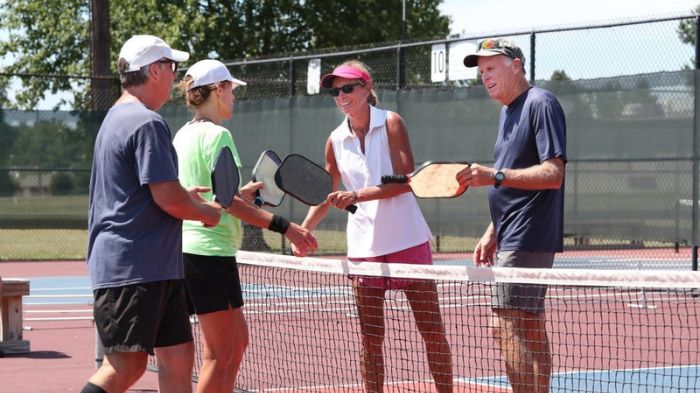
When entering and leaving the court, it’s important to use the correct entrance and departure locations. Players must refrain from approaching or leaving the court through unauthorized places because doing so could distract them during play. Players must also avoid crossing the court while the game is still in progress by waiting until a break between points.
Court Priority
It’s crucial to respect each court’s priority when there are several courts operating simultaneously. Players should wait for a break before crossing the court or moving through the court when a game is in progress. This protects everyone playing the game and not only demonstrates consideration for other players.
Faults and Calls
Players are required to call their own errors, such as touching the ball before it passes the net or standing on the non-volley zone line. They should refrain from criticizing their rivals, though, as this might spark unneeded conflict and stress. Players must also refrain from disputing calls with the referee or their opponents.
The greatest method to keep a friendly and courteous environment on the court is to accept calls in a good mood and carry on with the game.
These guidelines are an important part of the pickleball culture, and they help make the game more fun and engaging for everyone involved.
Etiquette During Gameplay
Etiquette during gameplay is an essential part of playing pickleball. It ensures a fair, respectful, and enjoyable experience for all players involved.
Score Keeping
Keeping an accurate score during the game is crucial. In addition to keeping track of the score for their own team, players should also announce the score before each serve to ensure that both teams are on the same page.
Stay Composed
Maintaining composure is key to being a good sportsman. Avoid overreacting to your own or your opponent’s successes or failures. While it’s okay to celebrate discreetly, excessive fist-pumping or squealing can be off-putting to others and may even cost you future invitations to play. Instead, remain calm and composed throughout the game.
Show Sportsmanship
While Pickleball is undoubtedly a competitive sport, it’s important to remember that it’s meant to be fun. It’s easy to get caught up in the moment and become a sore loser, but it’s important to lose graciously and congratulate the winning team. Throwing your paddle or arguing with your opponents is not only unsportsmanlike, but it also detracts from the enjoyment of the game.
Etiquette Off the Court
In addition to etiquette during gameplay, there are also important rules of conduct that should be followed off the pickleball court. These rules help create a positive and respectful atmosphere both on and off the court.
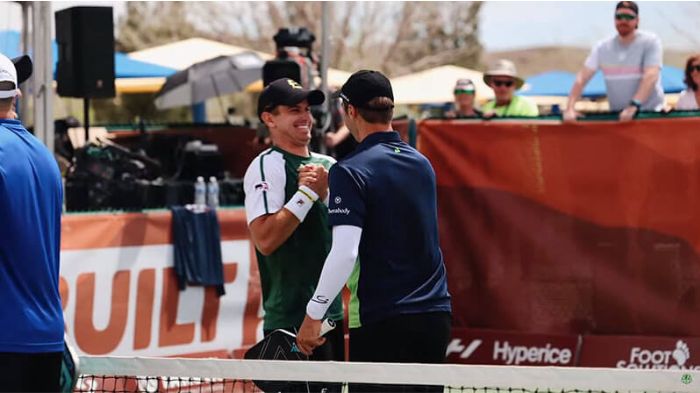
Socializing
The pickleball community places a high value on socializing since it helps players get to know one another. Making new players feel welcome and fostering a sense of community requires being polite and cordial, especially to them. However, players should also be considerate of those who might be concentrating on their game and avoid disturbing them.
Utilizing and Maintaining Equipment
Maintaining equipment is essential to a successful and fun game. Without permission, players should not use another person’s equipment, and they should take care not to abuse it. Even while it can seem like a little issue, taking someone else’s paddle or ball can be irksome and cause misunderstandings.
Players should take care of their own equipment, and they shouldn’t leave anything lying about on the court or in the pathways. In order to keep the equipment in good shape for future games, it is also crucial to maintain it and repair it as needed.
Court Imperfection
Every player has a duty to maintain the court clear of trash and clean because it can significantly impact how well the game goes. Water bottles, towels, and other trash shouldn’t be left on the court by players. In order to keep the game flowing, players should pick up dropped items right away.
Avoid spitting or leaving trash on the court, and dispose of it in the places that are designated for that purpose. Respect for the game, other participants, and the environment is shown by keeping the area tidy. You can also learn how to become 4.0 pickleball player? And what color should pickleball lines be?
FAQs
Unwritten rules in pickleball refer to the customs, behaviors, and courtesies that are not explicitly stated in the official rules but are expected to be followed by players. These unwritten rules have developed over time through shared experiences and help maintain a level of fairness, sportsmanship, and respect in the game.
Unwritten rules in pickleball are important because they promote a positive and respectful atmosphere in the game that goes beyond the written rules. They help to establish a shared culture of etiquette among players, which fosters a sense of community and camaraderie. Adhering to unwritten rules enhances the overall experience of the game for everyone involved.
The best way to learn about the unwritten rules in pickleball is to observe and learn from experienced players. Participating in games and tournaments, taking lessons, and watching instructional videos can also help you learn about the customs and behaviors that are expected on the court.
If you witness a player breaking an unwritten rule, it is important to handle the situation with tact and respect. You can calmly and politely remind the player about the unwritten rule they are breaking, or you can speak with a referee or tournament director for guidance.
A: While you can certainly establish your own customs and behaviors with your playing partners, it is important to remember that unwritten rules are generally accepted practices that have developed over time and are expected to be followed by most players. Making up your own unwritten rules may cause confusion and disrupt the overall etiquette of the game.
Final Thoughts
Etiquette during gameplay is essential to ensure a fair and enjoyable game of pickleball. Good communication is important to establish a game plan and avoid collisions. Players should also respect court priority and follow the non-volley zone rule.
Proper scorekeeping and serving techniques are important, and players should be mindful of their opponents while dinking. By following these etiquette guidelines, players can maintain a positive and respectful atmosphere on the court.


